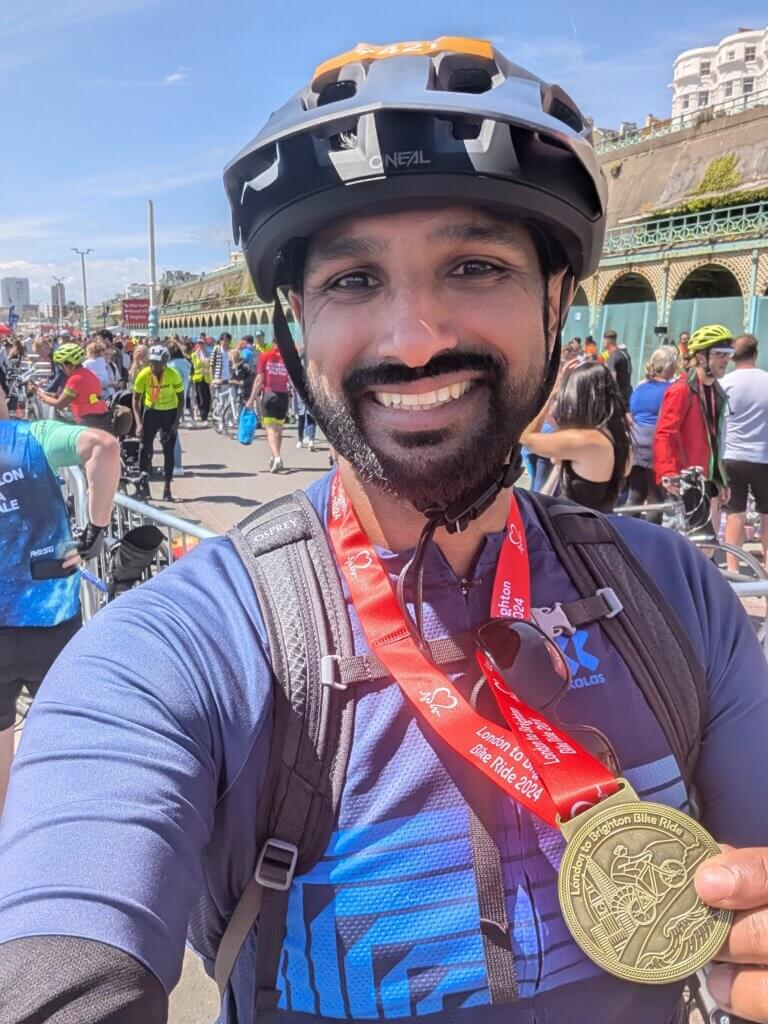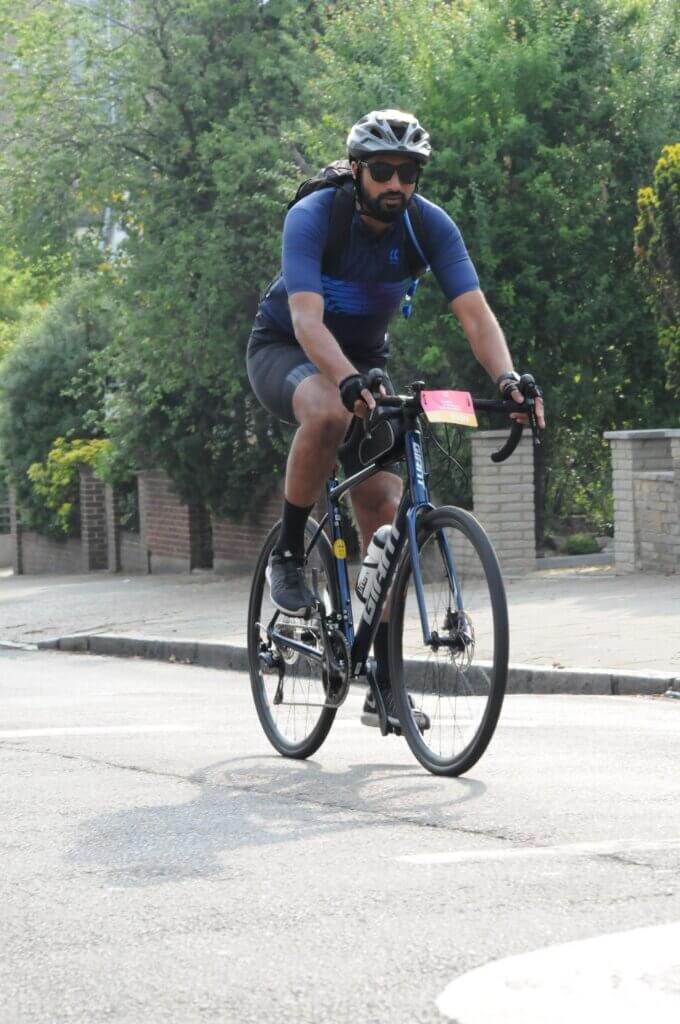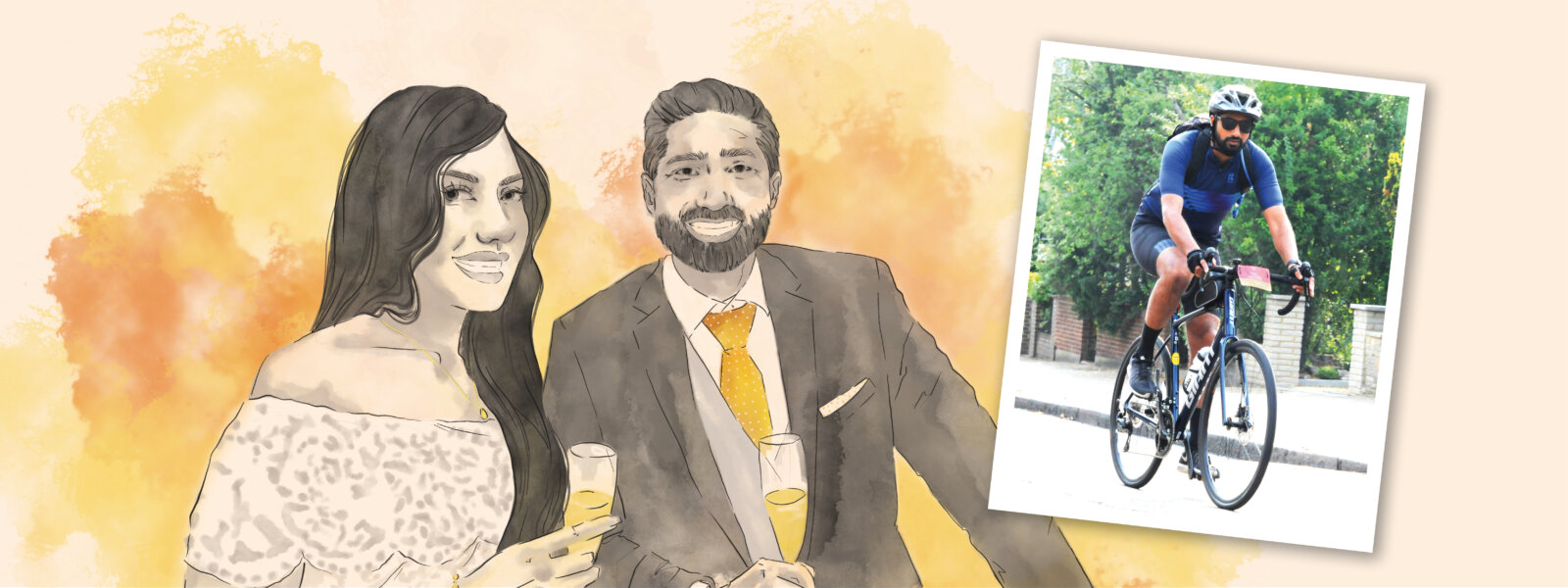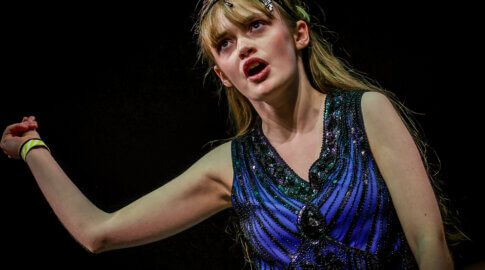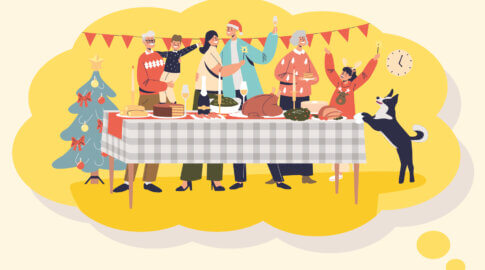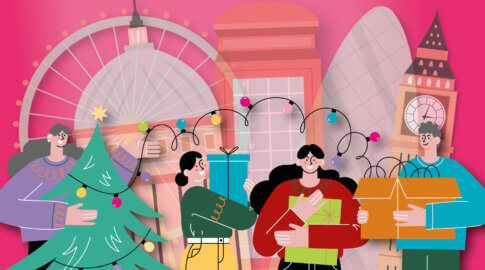“When it comes to caring for someone with PH, you’ve just got to keep cycling on”
It’s been ten years since Neer Mehta’s sister was diagnosed with pulmonary arterial hypertension, and the whole family have been on the journey together. Neer reflects on his role in supporting Kinari – and what he’s learned along the way...
Story shared in 2024
“My sister and I have always been very close. There’s just a two-year age gap between us, and we both live in the family home with our parents.
She was 25 when she was diagnosed with PH in 2014, and she’s doing ok at the moment. She went onto IV therapy about seven years ago, and understandably she does get frustrated with the pump by her side all the time, but she’s probably the most stable she’s ever been.
Our mum is my Kinari’s main carer, so she always has someone around her. She made a conscious decision not to work, so she could be there for her daughter.
I wouldn’t class myself as ‘a carer’, but I certainly give care. I always describe it as having a bird’s eye view of everything as a sibling.
You end up being the person who has got the pragmatic voice of reason in the room, but then at the same time you also need to be sensitive when you’ve got the ability to nourish the moments when difficult conversations take place. You can try to guide someone, but you have got to respect their own wishes as well.
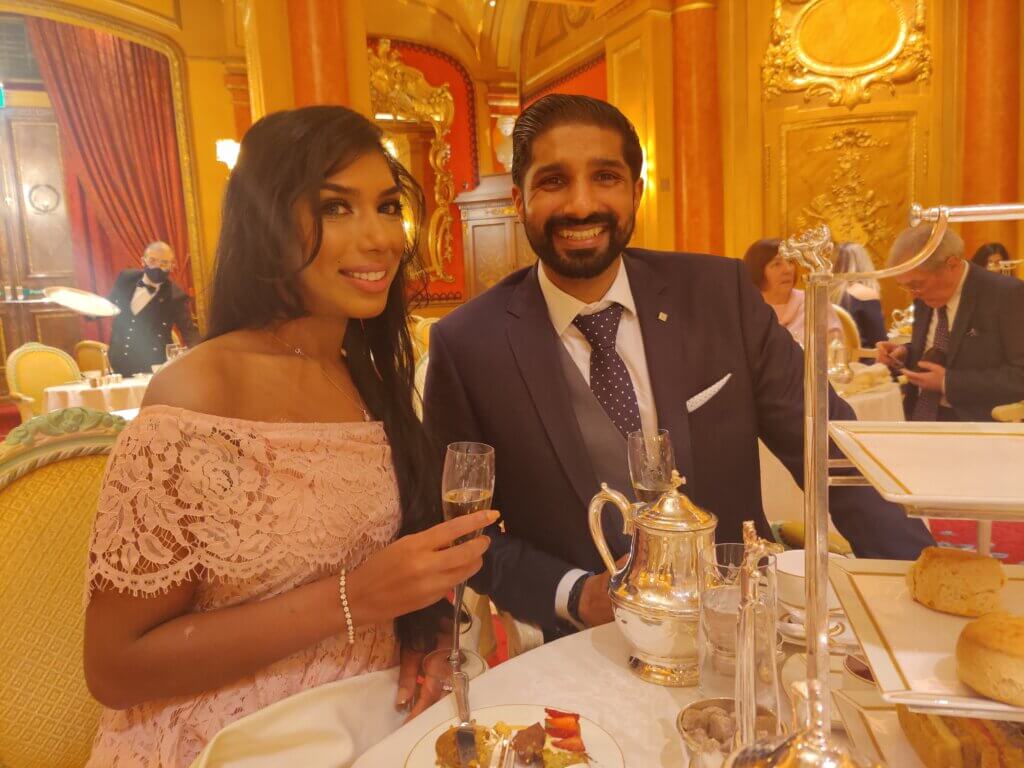
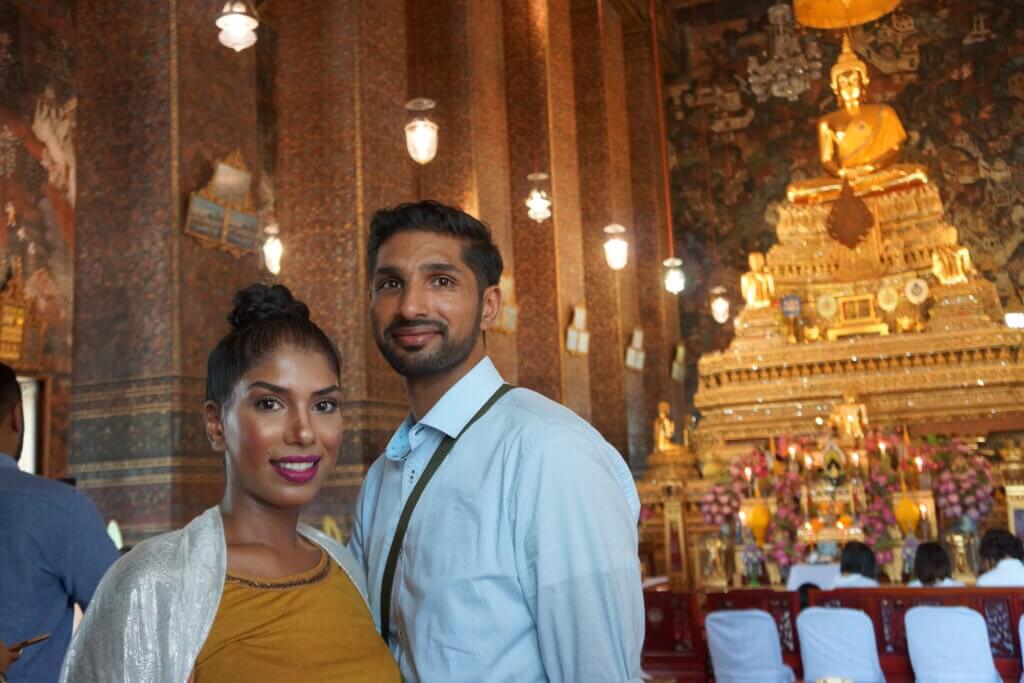
It’s been a bit of a journey in terms of making sure my sister gets the right level of care, but at the same time ensuring she can live her best life as much as possible. Kinari is her own person; it’s not about keeping her in bubble wrap. She admits herself that she sometimes pushes on a lot because she knows how limited time is.
My piece in all of this is to try and provide some sense of normality of that brother-sister relationship, which is important so that she doesn’t feel everything is about the health condition.
A lot of what we do together as siblings is low intensity, but valuable. We go shopping together, which is a good way of encouraging Kinari out of the house to clear her head and be around people.
Walking around a shopping mall is a controlled environment, as it’s relatively safe given there are so many places to sit.
We’ve got mutual friends, so we will sometimes all meet up at the pub. Meeting in a group is deliberate because it allows Kinari the space to breathe and grow, whilst we also spend time together as siblings.
Travel is also something we love to do together, and it’s been a big part of our journey since Kinari’s diagnosis.
We travelled to Thailand and Cambodia before she went onto the IV medication. We went along with a couple of friends, and it was a nice balance as they could help lift her spirits when I couldn’t, and it was good to have another female around for her.
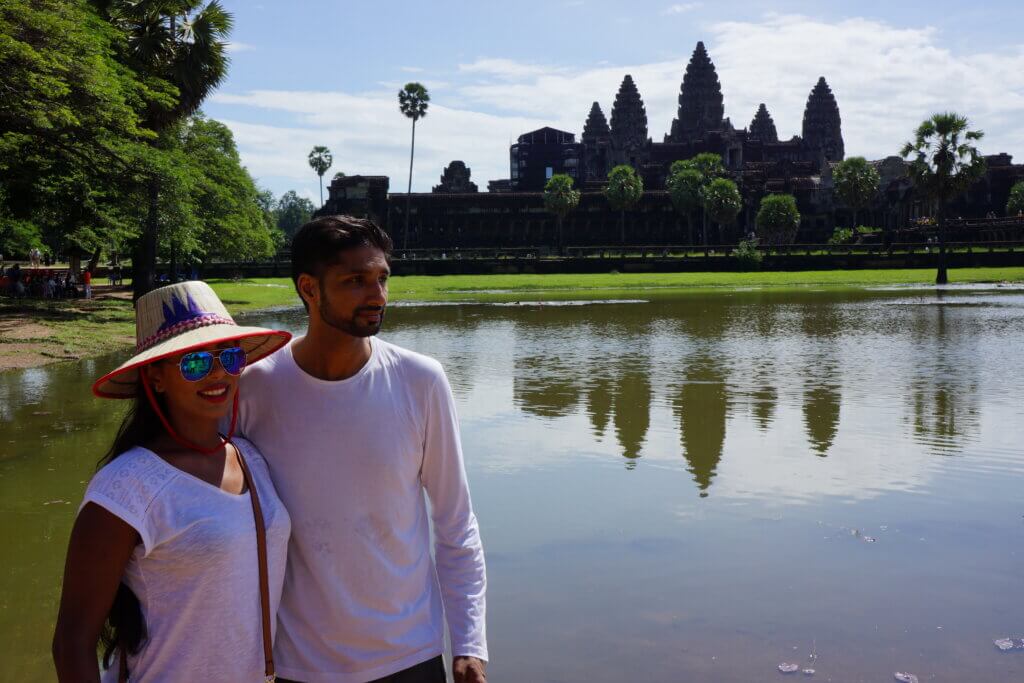
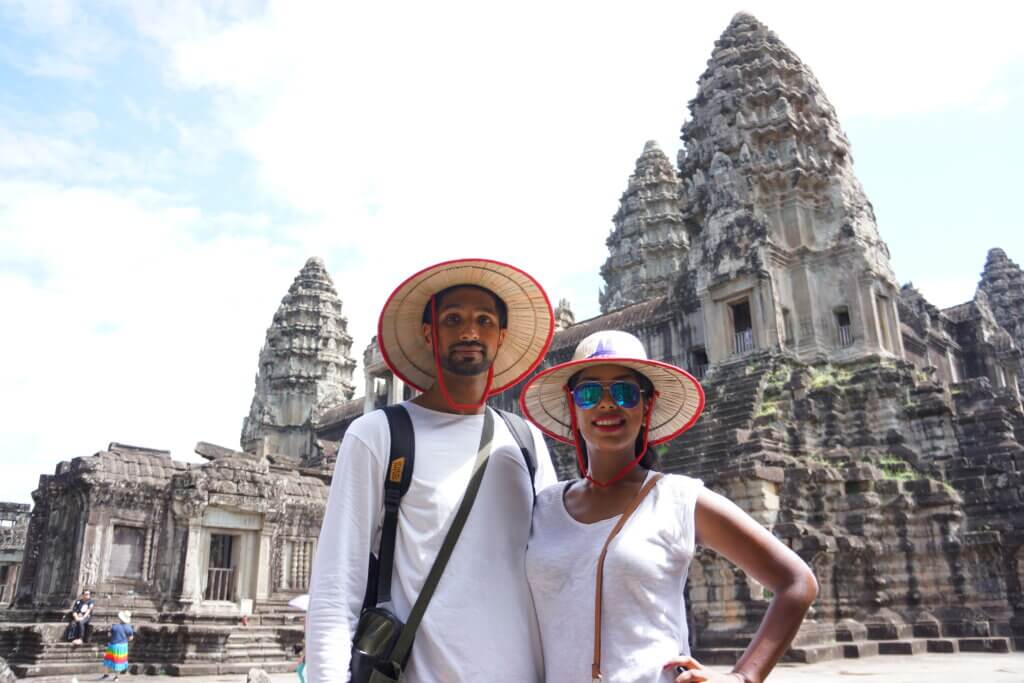
During our travels since, she always wants to explore the world further. Some challenges push us to our limits with adventure and excitement.
Kinari went on a big trip to Japan with our mum to mark the tenth anniversary of her diagnosis – her way of saying ‘I can do it’. Although it took quite a bit out of her, and having to fly her pump and spare medication across the world wasn’t simple, it was memorable for them both.
Some days are easier than others for my sister. Some days she just can’t get out of bed and there are other days when the world will see her as being very well – but as her family, we can see the true picture.
My parents have been very dedicated in terms of their care for Kinari, and it’s been tough for them at times. People see the patient, but they never see the hive of activity that goes on behind to prop them up.
In terms of strength, for me, it comes from being able to step away and go and talk to my friends. Because they are friends with both of us, they see things from both sides. I’ve also got my own career, and I take time out through cycling and other activities which allow me to have that mental capacity to come back and have a bit of positive energy to bring back into the house.
For anyone who is at the start of their journey to support someone recently diagnosed with PH, I would say that patience is key, and time is precious. It is a journey, and if I was to summarise, I would say: You’ve just got to keep cycling on.”
How cycling helps me to support my sister
“You’re only able to help those around you when you have looked after yourself, and I needed to find time for myself to better support my sister. With everything going on, sometimes you can forget about your own bit of the world – and that’s where cycling came in for me.
It initially became a lockdown habit, as a way of getting of the house and ensuring I got some space.
Cycling allows me to have some fresh air and breathing space, to reset, and give me time to think: ‘What do I need to do for me? What do I need to do around the house? What do I need to do for her? How does that all form together?’
I can set myself a cycling distance, and a time to work towards, and it helps give me a sense of control as at least I can control that variable. What I can’t do is control how Kinari’s condition is progressing, or how she is feeling from one day to the next.”
- In 2024, Neer took on a 55-mile sponsored bike ride to raise thousands of pounds for the PHA UK.
